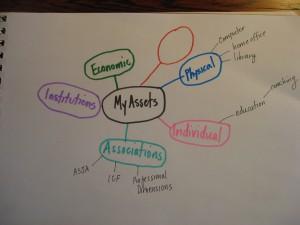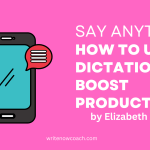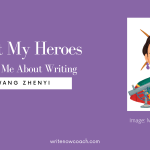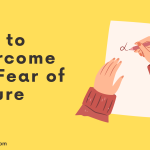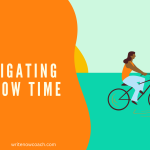Mapping Your Assets by Rochelle Melander
 When we recognize and appreciate our assets, we transform our thinking. Instead of seeing needs and deficiencies, we see gifts and strengths. We transform negatives into positives. We see our cup as half-full. —Luther Snow (The Power of Asset Mapping by Luther Snow, p. 46)
When we recognize and appreciate our assets, we transform our thinking. Instead of seeing needs and deficiencies, we see gifts and strengths. We transform negatives into positives. We see our cup as half-full. —Luther Snow (The Power of Asset Mapping by Luther Snow, p. 46)
Ten years ago, I had the privilege of editing Luther Snow’s book The Power of Asset Mapping. His book provides a process for leaders to reflect on their assets. As I looked at the work we’ve been doing the last two weeks, evaluating what we’ve done and then paying attention to what piques our curiosity, I wondered how we might pull this all together into a plan for the New Year. Then it hit me: asset mapping! This will take some time, so we’ll do part one this week (mapping our assets) and part two next week (brainstorming a plan).
Asset Mapping
Set aside at least an hour to do this exercise. I like to use mind mapping to collect my assets (note photo at left), but you can also create a series of lists. When you get stuck, use your lists from the last two exercises as a resource. Create a record of your assets using these categories from Luther Snow’s book:
Physical assets. Things you can touch, see, or feel. This might include your computer, books, or your large collection of pens! I’d also include the assets you’ve collected on your computer or online, like your half-written novel or your boards on Pinterest.
Individual assets. List your talents, experiences, skills, preferences, and everything you wonder about. This might include your skill of explaining difficult topics, interest in how copper is mined, or ability to catch typographical errors that everyone else has missed! If you get stuck, take a look at your list of what you value from your work as a writer (The Reckoning) and your list of what piques your curiosity (The Scavenger Hunt).
Associations. Note who you know and who you hang out with. This might be a list of editors, agents, and other writers as well as your colleagues in other fields. Also add any groups or networks you belong to, both professional and social. So you might list your exercise buddies at the gym, the professional networking group you meet with, and your neighborhood book group. Don’t forget your online buddies—the people you know through LinkedIn, Twitter, Facebook, and more.
Institutions. Make a list of the businesses, public agencies, and nonprofit institutions that you connect with regularly. Include the schools you attended and the places you’ve done work for (whether volunteer or for a fee). If you get stuck, take a look at your lists from The Reckoning: who did you work for this year?
Economic assets. I often think I should skip this section, because I don’t have a lot of spending and investing power these days. But don’t just include the money you earn, list your savings and anything you can do for money (Babysit? Cook? Write!).
Other assets. Have I missed a category or two? Add them and the assets that belong to the categories.
More Asset Sources. If you come to the end of this exercise and feel like you’re missing something, try looking for assets in one of these places:
+Go back to your lists from The Reckoning and The Scavenger Hunt. Are there any assets hiding on those lists? Add them.
+Take a look at your previous jobs, even the ones that you hated. What assets did you cultivate in those jobs that you can use now? (For example, when I was a minister, I preached every week. In my current work, that translates as public speaking.)
+List any unusual, crazy, or rare skills you have. Perhaps you make lefse, but since you only do it at Christmas, you don’t think of it as an asset. Or maybe you have the rare talent of finding the perfect Halloween costume. Own it and list it!
+If you do all of these exercises and still feel like something’s missing, talk to a close friend. What assets do they see in you? What connections do they know about that you’ve overlooked?
+Let the list sit for a day or two. I’m guessing you’ll think of even more assets as you’re decorating, cleaning, or exercising.
A Final Word. Every time I create an asset map, I experience an overwhelming sense of gratitude for all I have. Once you’ve finished your asset map, take a moment to appreciate your many riches. Wow! Now, tuck it away for next week. We’ll be using our maps to come up with a plan for the New Year!
[Tweet “#Writers, what are you grateful for this year?”]

